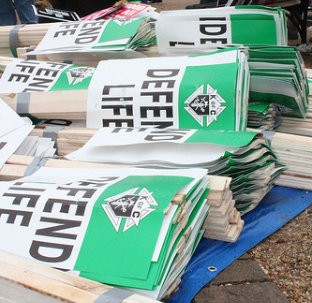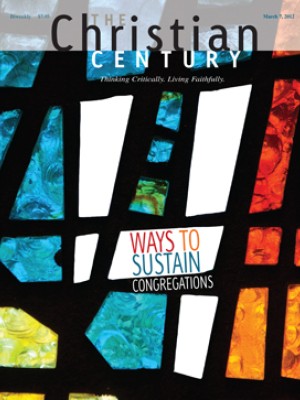Life and health
I recall three times when the churches I served were picketed. On one occasion, some neighbors were opposed to a development project in which the church was a partner. The opponents handed flyers to worshipers as they arrived and departed, describing what they claimed would be the disastrous repercussions of the proposal. The picketers wore large round badges with the image of the new building, including the church at its base, crossed out with a big red X.
The second incident cut more deeply. Some Presbyterian officials on a study trip to the Middle East met with and said positive things about representatives of Hezbollah and Hamas. This was in the midst of church proposals to divest from corporations whose business in Israel was deemed harmful to the Palestinians. Representatives of the Jewish community picketed on a Sunday morning to express unhappiness with the Presbyterian Church (U.S.A.). Fortunately, the church had a strong relationship with a local synagogue and with major Jewish organizations. In a way, the Sunday morning picketers underscored the importance of the relationship and actually spurred more meaningful dialogue and shared mission activity with our Jewish neighbors.
Read our latest issue or browse back issues.
The third incident, and by far the most traumatic, had to do with abortion. For some time the church I served in Ohio had been providing start-up office space for a religion-based organization that advocated for reproductive choice. After an intense discussion, the church Session had allowed the use of the space. An influential voice on the Session, I recall, was that of a distinguished, generally conservative woman who said firmly that a woman's body was her own business and responsibility.
A group opposed to legal abortion showed up on several Sunday mornings to carry placards in front of the church. I went out to meet them, introduced myself and invited them in for a conversation. The discussion went badly. In fact, it wasn't a conversation at all. I asked for the opportunity to explain why the church did what it did and was met with a barrage of harsh rhetoric and accusations.
On my last Sunday as pastor of the church, the protesters returned with large placards bearing bloody images of fetuses and signs that read: "Buchanan Is a Baby Killer" and "Good Riddance."
I was reminded of those confrontations as I followed the controversy over the decision by Susan G. Komen for the Cure to cut funding for breast exams at Planned Parenthood clinics—and over its subsequent decision to restore its funding of Planned Parenthood. Since some Planned Parenthood clinics perform abortions and provide information on abortion, it has become a favored target of antiabortion groups.
At the heart of the controversy is the fact that Americans are conflicted on the issue of abortion. A great many individuals are conflicted within themselves.
I object to the monopolization of the term pro-life by groups whose agenda is to make abortion illegal and deny women the right and responsibility to decide this very personal matter. I am certainly not "antilife," nor am I proabortion. I am for choice. The issue is whether women should have that freedom.
Since 1973 that decision has been a guaranteed right, and I think that, given the moral ambiguities that surround abortion, it is a right that makes sense.
I know from experience that positions on this issue are deeply held. But I continue to think that we can be civil in our disagreement and that we ought to look for common ground where we can—such as on supporting women's health.







